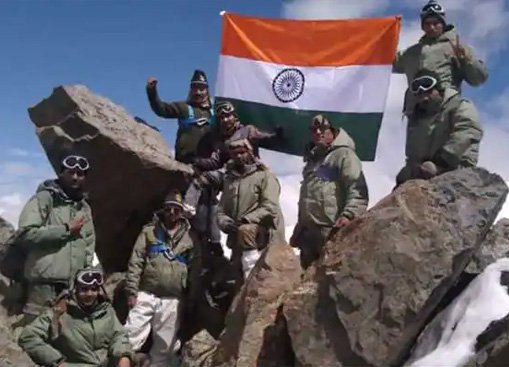Introduction
Kargil Vijay Diwas
Kargil Vijay Diwas, celebrated on 26th July every year, is a solemn occasion that pays homage to the brave soldiers of the Indian Armed Forces who exhibited exemplary courage and sacrifice during the Kargil War in 1999. This conflict, fought at high altitudes in the rugged terrain of the Kargil district in Jammu and Kashmir, was a defining moment in India’s military history, showcasing the indomitable spirit of the nation’s armed forces and the unity of its people.
The Genesis of the Conflict
The Kargil War erupted in May 1999 when the Indian intelligence agencies discovered that Pakistani soldiers, disguised as militants, had infiltrated the Indian side of the Line of Control (LoC) – the de facto border that divides Jammu and Kashmir between India and Pakistan. The intruders aimed to capture strategic positions along the LoC, thereby threatening India’s territorial integrity and security.
The surprise attack caught India off guard, but the nation swiftly responded to this act of aggression, initiating Operation Vijay – a military campaign to evict the intruders and restore control over the occupied territories.
The Challenges and the Heroes
The Kargil conflict presented unique challenges, primarily due to the treacherous mountainous terrain and the extreme weather conditions. Indian soldiers had to battle not only the enemy forces but also cope with high altitudes, freezing temperatures, and limited resources.
The valor displayed by the Indian Armed Forces during this war was nothing short of extraordinary. Soldiers demonstrated unwavering courage, determination, and a strong sense of duty in the face of grave danger. They waged fierce battles at locations such as Tololing, Tiger Hill, Point 4875, and many others, pushing back the well-entrenched enemy forces.
The Indian Air Force (IAF) also played a crucial role in providing air support, despite the challenging Himalayan terrain and the threat posed by the Pakistani Air Force. The successful use of precision-guided munitions, including laser-guided bombs, marked a significant turning point in the conflict.
The Role of Leadership
The Kargil War was a testament to the leadership and strategic acumen of the Indian military commanders. Their astute decision-making, coupled with the bravery and dedication of the troops, led to several successful operations and the eventual recapture of the infiltrated areas. The leadership demonstrated during the Kargil War continues to be a source of inspiration for future generations of soldiers.
The Homefront: Unity and Resilience
Kargil Vijay Diwas is not only a tribute to the soldiers on the frontline but also a celebration of the unyielding spirit of the Indian people. The entire nation rallied behind the armed forces, displaying a remarkable sense of unity and resilience. Families of soldiers, communities, and individuals provided unwavering support to the troops, showcasing the true essence of patriotism.
The media played a crucial role in bringing the war into the living rooms of every Indian, increasing awareness about the sacrifices made by the armed forces. This widespread coverage galvanized the nation and further strengthened the resolve to overcome the challenges posed by the enemy.
Peacekeeping Efforts
India’s commitment to peace and stability was evident even during the Kargil War. Despite the intense conflict, India remained open to diplomatic solutions and expressed willingness to resolve issues through dialogue. Once the intruders were evicted and the war came to an end, India continued to extend a hand of friendship towards Pakistan, emphasizing the importance of peaceful coexistence.
The Aftermath and Lessons Learned
The Kargil War had profound implications for both India and Pakistan. For India, it underscored the importance of modernizing and strengthening its armed forces, particularly in mountain warfare. The conflict also prompted a reevaluation of security policies and strategies to prevent such surprises in the future.
On the international stage, the Kargil War highlighted the significance of resolving disputes through peaceful means and garnered widespread support for India’s stance on cross-border terrorism.
Conclusion
Kargil Vijay Diwas stands as a stark reminder of the sacrifices made by the brave soldiers who laid down their lives to protect the nation’s integrity. It is a day to remember and honor their valor, dedication, and selflessness. Moreover, it serves as a symbol of India’s determination to defend its sovereignty and maintain peace in the region.
As the nation observes this day every year, it is crucial to instill in future generations the spirit of patriotism, unity, and respect for the armed forces. The Kargil War teaches us valuable lessons about the importance of preparedness, leadership, and diplomacy in safeguarding the nation’s interests. Let us remember and pay tribute to our heroes on this significant day and strive to uphold the values they exemplified – courage, resilience, and love for the motherland.
